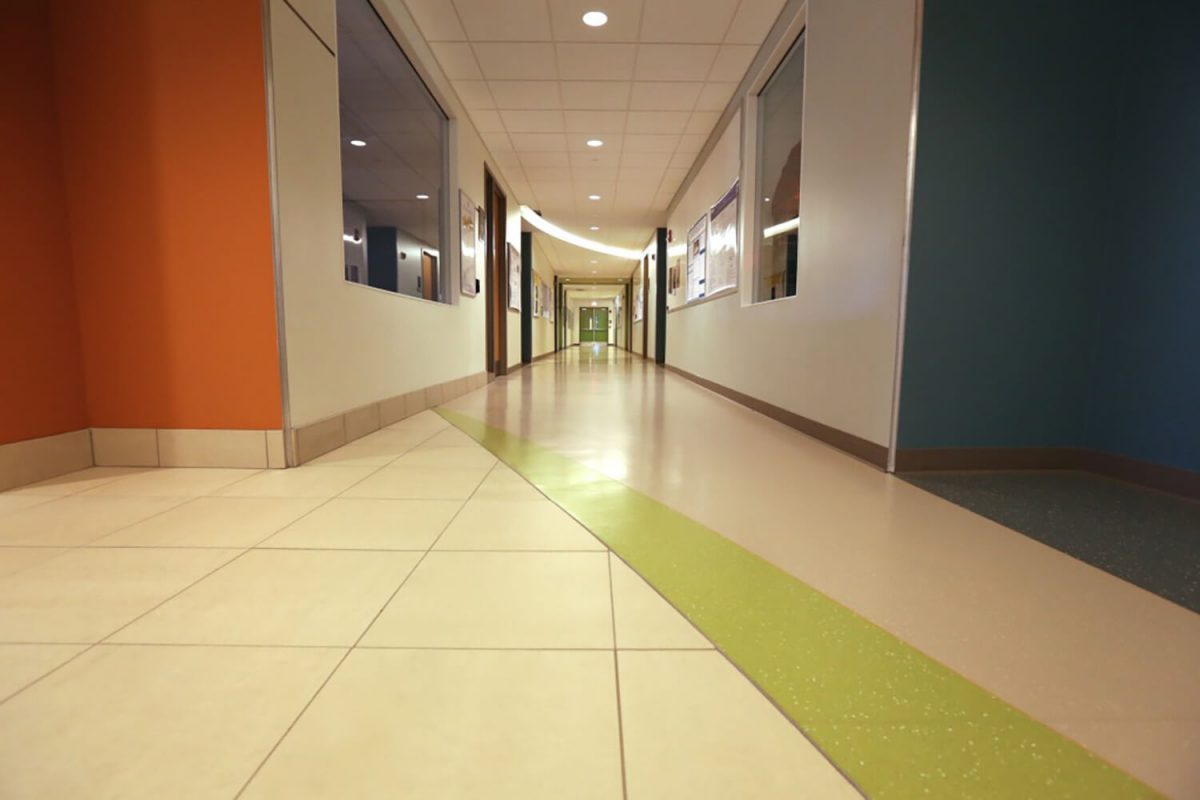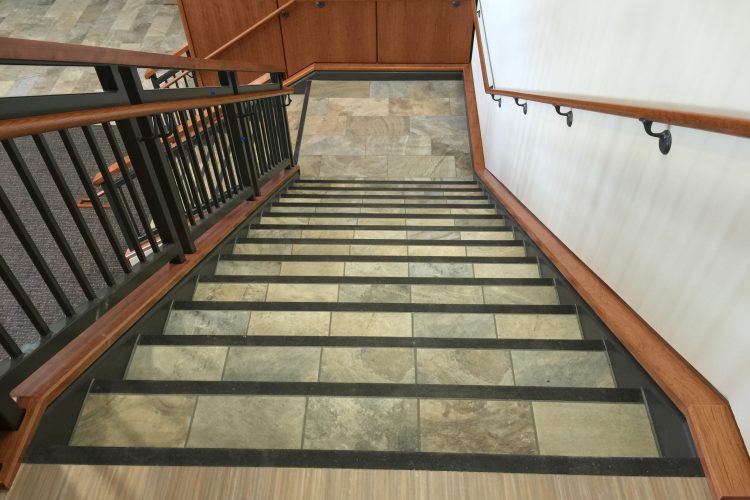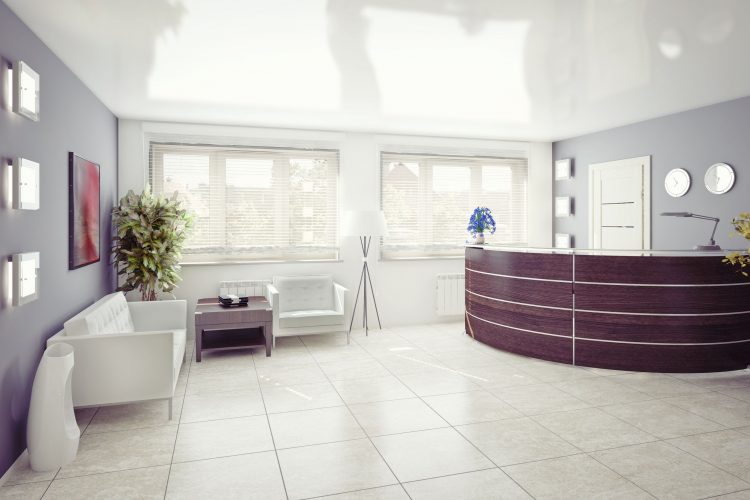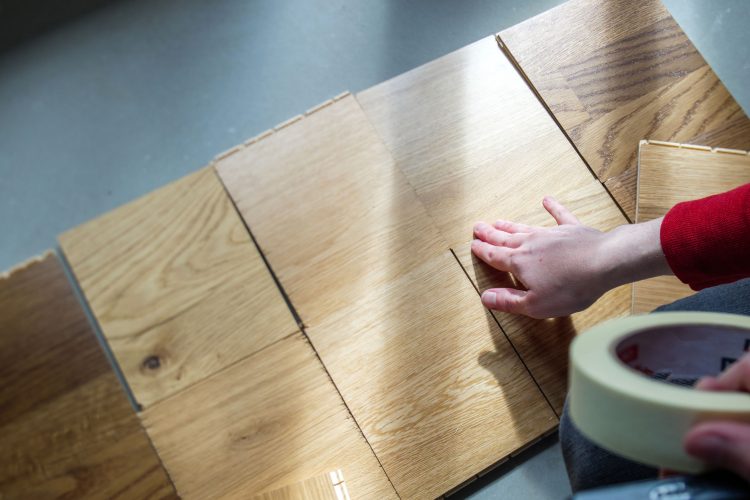Pros and Cons of 8 Common Commercial Flooring Types

Choosing the best flooring for your needs can be a tricky process, considering that there are so many different types of commercial flooring to choose from. Understanding what each type of flooring entails, along with its advantages and disadvantages, can help you make your decision.
Here are eight commercial flooring options and their pros and cons.
Linoleum Flooring
Linoleum is a durable, eco-friendly material that comes in a wide range of colors and styles. While it requires little maintenance, it can be damaged if installed in humid rooms such as bathrooms or laundry rooms.
Pros:
- Can last 40 years or more
- Composed of biodegradable materials
Cons:
- Can darken when exposed to sunlight
- Susceptible to moisture
Carpet Installation
Carpet and carpet tiles are the most popular option when it comes to types of commercial flooring due to their durability and wide variety of styles, colors and textures. However, carpet tiles can wear out and fray over time.
Pros:
- Easy to maintain
- Inexpensive
Cons
- Can attract dirt and stains
- Susceptible to allergens
Ceramic Tile
Although you may think that ceramic tile is only suitable for kitchens or bathrooms, it can give an elegant appearance to lounge areas and hallways. Ceramic tile is easy to clean and requires little maintenance, but it can get cold in the winter due to its lack of heat absorbance.
Pros:
- Durable and long-lasting
- Resistant to sunlight, water and fire
Cons:
- Heavy
- Slippery and hard
Hardwood Flooring
Wood is one of the most common types of commercial flooring due to its expensive appearance and variety of styles, colors and cuts to choose from. However, the installation process can be lengthy and expensive.
Pros:
- Elegant appearance
- Easily cleaned
Cons:
- Susceptible to humidity and moisture
- Easily scratched
Laminate Flooring
If you’re looking for a similar appearance to wood but for a much lower price, laminate is one of the best types of commercial flooring. Although it’s scratch-resistant and durable, it can be difficult to mend when damaged.
Pros:
- Easy to maintain
- Approximately half the price of hardwood
Cons:
- Difficult to repair
- Susceptible to moisture
Sheet Vinyl Flooring
If you’re in need of flooring for busy areas like offices, hospitals or schools, sheet vinyl is among the best commercial flooring options. Its durability ensures that it can withstand heavy traffic, and it can also help control noise. However, it can be difficult to repair if severely damaged.
Pros:
- Low cost
- Stain- and water-resistant
Cons:
- Susceptible to discoloration
- Can wear down over time
VCT Flooring
Vinyl composite tile is an affordable flooring option that has been shown to stand the test of time. Although it’s long-lasting, extreme climate changes can cause it to lose its shine and color.
Pros:
- Resistant to water, scratches and stains
- Highly customizable
Cons:
- Difficult to remove
- Subfloor must be completely level prior to installation
Green Flooring Options
Interested in going green? From bamboo to cork flooring, there are plenty of options to choose from. Not only are these eco-friendly materials better for the environment, but they’re also reusable and therefore cost-effective.
Pros:
- Improve air quality in your home or office
- Aesthetically pleasing
Cons:
- Can be susceptible to humidity
- Can be more expensive
Understanding the flooring types pros and cons can help you make a well-informed decision on which types of commercial flooring are best for your needs. Considering these commercial flooring options can help you choose.
Need some expert advice on what kind of commercial flooring is the best fit for your home? Give our team a call today at 585-444-0105. We’d love to help you choose the right flooring to give your space the look you’ve always wanted, and so you can get the most money back if and when you’re ready to sell.
Related Posts

Durable Commercial Flooring: Everything You Need to Know About Different Types

Commercial Porcelain Tile: Why It’s a Great Option Compared to Ceramic Tile

